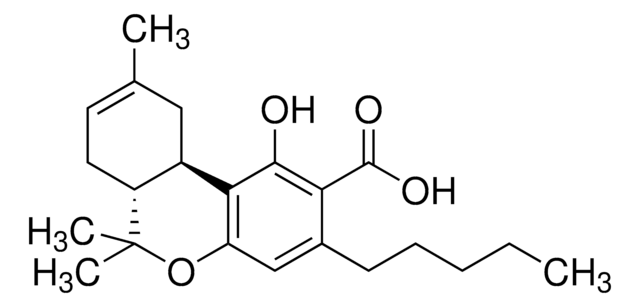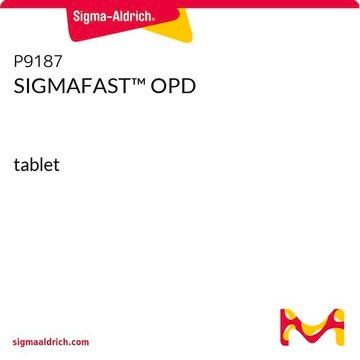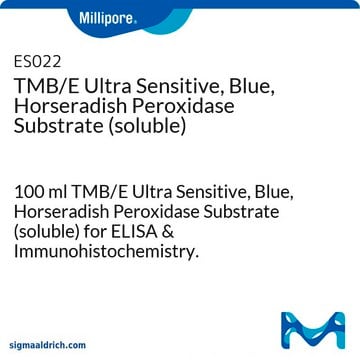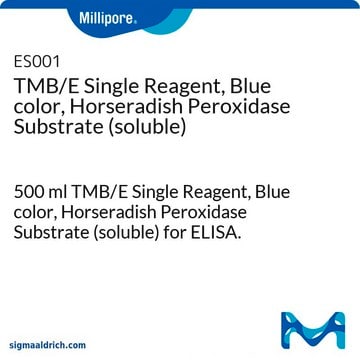T4319
3,3′,5,5′-Tetramethylbenzidine
peroxidase substrate, chromogenic, liquid
Synonym(s):
TMB
Sign Into View Organizational & Contract Pricing
All Photos(1)
About This Item
UNSPSC Code:
12352204
NACRES:
NA.83
Recommended Products
Product Name
3,3′,5,5′-Tetramethylbenzidine Liquid Substrate, Slow Kinetic Form, for ELISA, peroxidase substrate
Quality Level
form
liquid
shipped in
wet ice
storage temp.
2-8°C
Related Categories
Application
3,3′,5,5′-Tetramethylbenzidine Liquid Substrate, Slow Kinetic Form, for ELISA has been used as a substrate for anti-bovine IgG-peroxidase conjugated antibody and for horse radish peroxidase-conjugated mouse anti-mouse IgG in Poly (ADP-ribose) binding assays.
Contains TMB in a mildly acidic buffer. The substrate is supplied as a one component ready to use solution. Rate kinetics are approx. 25% slower than traditional TMB formulations. Not recommended for membrane or immunohistochemical applications that require a precipitating reaction product.
Storage Class Code
12 - Non Combustible Liquids
WGK
WGK 1
Flash Point(F)
Not applicable
Flash Point(C)
Not applicable
Choose from one of the most recent versions:
Certificates of Analysis (COA)
Lot/Batch Number
Don't see the Right Version?
If you require a particular version, you can look up a specific certificate by the Lot or Batch number.
Already Own This Product?
Find documentation for the products that you have recently purchased in the Document Library.
Customers Also Viewed
Protection of cattle against a natural infection of Fasciola hepatica by vaccination with recombinant cathepsin L1 (rFhCL1)
Golden O, et al.
Vaccine, 28(34), 5551-5557 (2010)
Efficient single-strand break repair requires binding to both poly (ADP-Ribose) and DNA by the central BRCT domain of XRCC1
Polo LM, et al.
Testing, 26(3), 573-581 (2019)
Luis M Polo et al.
Cell reports, 26(3), 573-581 (2019-01-17)
XRCC1 accelerates repair of DNA single-strand breaks by acting as a scaffold protein for the recruitment of Polβ, LigIIIα, and end-processing factors, such as PNKP and APTX. XRCC1 itself is recruited to DNA damage through interaction of its central BRCT
Our team of scientists has experience in all areas of research including Life Science, Material Science, Chemical Synthesis, Chromatography, Analytical and many others.
Contact Technical Service









